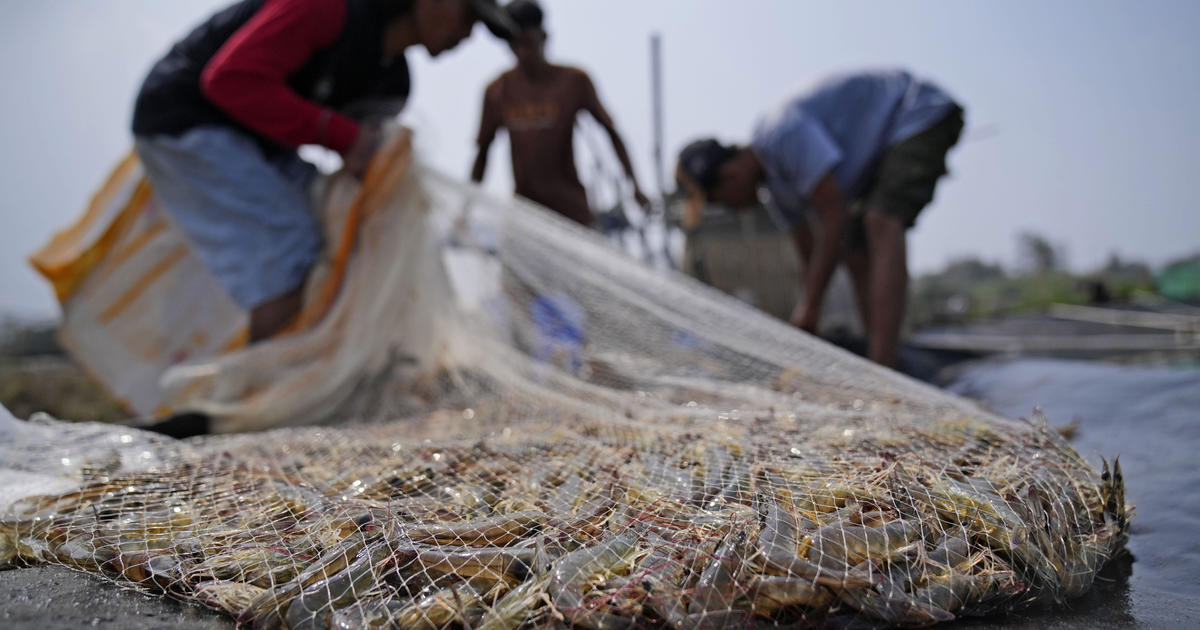The global shrimp industry, a multi-billion dollar enterprise, is facing increasing scrutiny regarding its labor practices. A recent investigation by a coalition of NGOs highlights the exploitation of workers in Vietnam, Indonesia, and India, three major shrimp-producing nations, revealing a system where the pursuit of ever-lower prices by large Western supermarkets results in severe human rights abuses throughout the supply chain. This pattern of exploitation underscores a critical need for greater transparency and ethical sourcing within the industry, impacting the livelihoods of millions and raising serious ethical questions about consumer choices.
Exploitation of Shrimp Farm Workers: A Global Issue
Unfair Wages and Working Conditions
The investigation uncovered widespread instances of worker exploitation across the three countries. In Vietnam, shrimp processors, predominantly women, work excessively long hours in frigid conditions for meager wages, often falling below minimum wage standards. Many endure unpaid overtime and experience wage insecurity, with rates fluctuating unpredictably, leading to a significant drop in earnings (20%-60%) since the pre-pandemic era. Similar scenarios emerged in India and Indonesia, where workers faced dangerous and abusive conditions including exposure to contaminated water, unpaid labor, debt bondage, and even child labor. In Indonesia, average monthly wages of around $160 frequently fail to meet the national minimum wage. This lack of adequate compensation directly contributes to precarious living situations and undermines worker dignity. The prevalence of women and children in these low-wage roles adds layers of vulnerability and underscores the systemic inequalities at play. The inhumane conditions and low compensation drastically disproportionately impact vulnerable populations who have little to no bargaining power.
The Role of Supermarkets and the Supply Chain
The report directly implicates major Western supermarkets like Walmart, Target, Costco, Sainsbury’s, Tesco, Aldi, and Co-op in perpetuating this exploitative system. The relentless pressure for lower wholesale prices incentivizes suppliers to cut costs, inevitably leading to compromised labor standards and the abuse of workers throughout the intricate shrimp supply chain. The use of intermediaries makes tracing the origin of shrimp incredibly difficult and obscures the real labor conditions connected to final products on shelves, thus hindering the ability to monitor ethics and enforce responsible practices. The sheer scale of the shrimp farming industry, with millions of farms, and the low percentage of farms holding ethical certifications (less than 1%) demonstrate the difficulties of holding the supply chain accountable and providing support to all stakeholders.
The Need for Transparency and Ethical Sourcing
The Lack of Traceability in the Shrimp Supply Chain
The complexity of the global shrimp supply chain, coupled with a lack of transparency, presents a major obstacle in addressing worker exploitation. Middlemen obscure the true sources, making it challenging for retailers to effectively monitor and enforce ethical sourcing commitments. The vast majority of shrimp farms lack certification from organizations like the Aquaculture Stewardship Council (ASC) or Best Aquaculture Practices (BAP), indicating widespread noncompliance with established ethical standards and leaving workers in high-risk situations. The difficulty in tracing individual products from farm to supermarket allows unethical practices to flourish unnoticed, requiring stricter regulations and improved tracking systems across the board.
Implications for Consumers and Policy Makers
Consumers largely remain unaware of the labor abuses inherent in the production of the shrimp they consume. Increased consumer awareness and a growing demand for ethically sourced seafood are crucial to fostering change. Furthermore, governments and policy makers have a critical role to play in implementing and enforcing regulations designed to protect workers’ rights and hold businesses accountable for their supply chains. This could involve greater transparency mandates and strict adherence to international labor standards to ensure fairness and sustainability across the shrimp industry. The burden on these regulatory bodies is substantial given the sheer scale of the supply chains involved, requiring careful planning, resourcing, and implementation.
Potential Solutions and Future Steps
Strengthening Regulatory Frameworks and Enforcement
Governments in both producing and consuming countries can play a key role by strengthening regulations to ensure fair wages, safe working conditions, and the elimination of child and forced labor. This requires not only legislation, but also robust enforcement mechanisms and accountability measures for businesses operating in the industry. Stronger regulatory measures are particularly needed where monitoring and enforcement has been historically inadequate or ineffective. This includes developing international frameworks to facilitate information-sharing and collaborative initiatives between nations.
Promoting Fair Pricing and Sustainable Practices
Western supermarkets and retailers need to adopt fairer pricing strategies that reflect the true cost of production, including fair wages and ethical labor practices. A shift from solely focusing on price minimization toward value-based purchasing can incentivize responsible production and create a more equitable distribution of profits throughout the supply chain. This requires commitment not only from retailers, but also from consumers. Increased purchasing of certified shrimp and willingness to support sustainable business models through higher-priced items can act as substantial influencers for better ethical conduct.
Empowering Workers and Promoting Collective Action
Worker empowerment through access to information, legal protection, and the right to organize collectively is fundamental to combating worker exploitation. Strong labor unions can play a key role in advocating for workers’ rights and facilitating negotiations for better wages and working conditions, fostering sustainable environments where businesses actively collaborate and are held mutually accountable to avoid exploitative practices. This necessitates long-term involvement to affect sustainable systemic change.
Take Away Points:
- The shrimp industry faces serious ethical issues involving labor exploitation, particularly in Vietnam, Indonesia, and India.
- Large Western supermarkets play a significant role in perpetuating these abuses through their relentless pressure for low prices.
- Lack of transparency and traceability in the supply chain complicates efforts to monitor and address these issues.
- Solutions require a multi-pronged approach involving stronger regulations, fair pricing, and empowerment of workers. Increased consumer awareness and a willingness to pay more for ethically sourced shrimp are essential.




